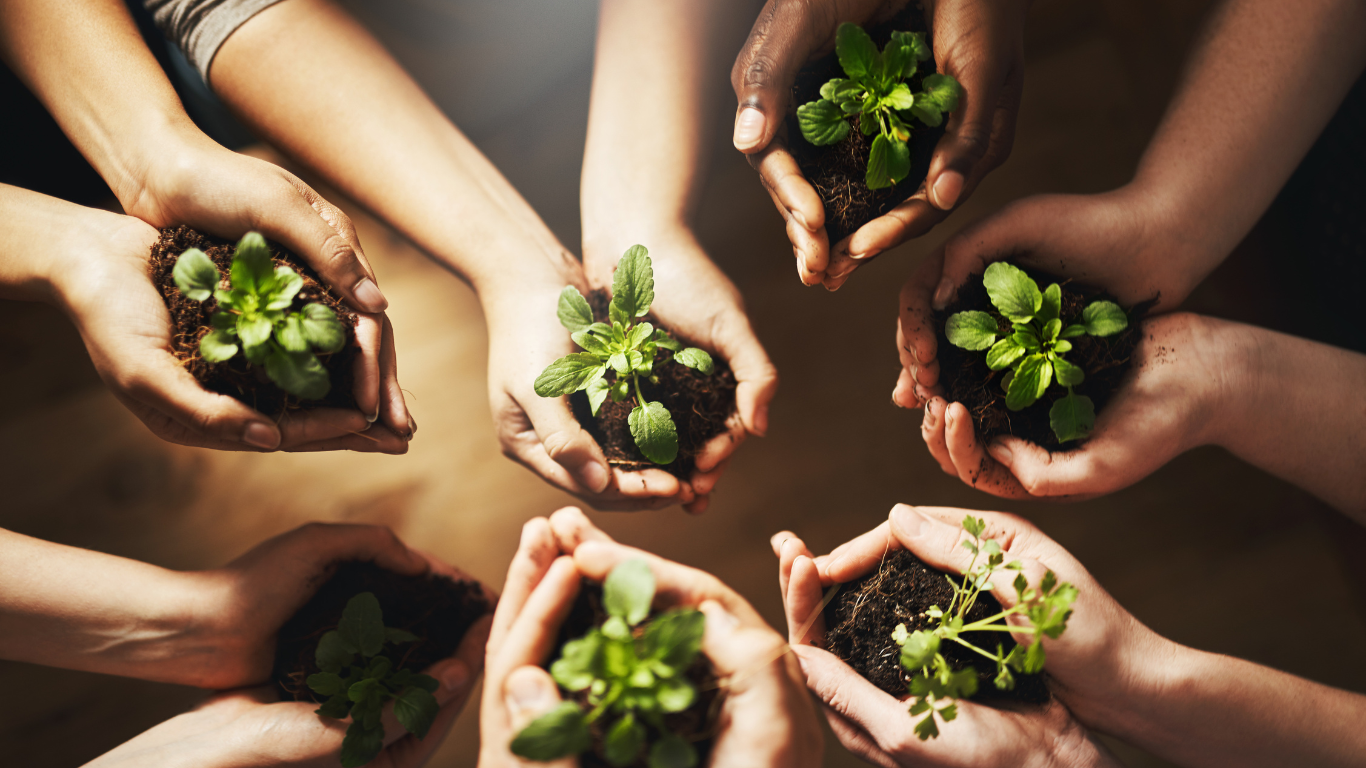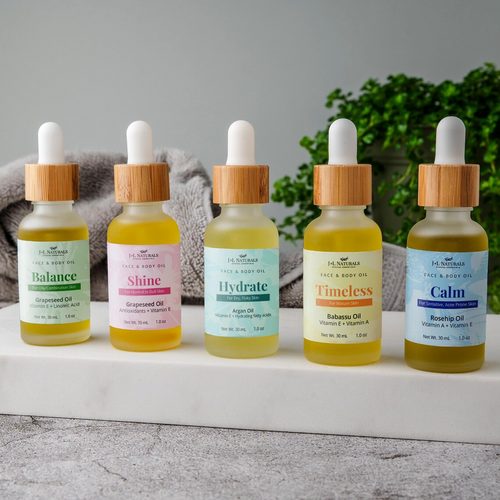FREE US SHIPPING WHEN YOU SPEND $35+
New to Sustainability? 10 Easy Tips to Get You Started


To many people, living sustainably seems like a pretty overwhelming feat. You need to make sure your food is fair trade, and even vegan. You must be able to tell fast fashion from ethical fashion. And you have to avoid plastic and wasteful packaging at all costs. Right?
Well, yes and no. It’s true that all those steps can make a positive impact on the planet. However, sustainability isn’t all-or-nothing. Let’s face it: in this day and age, it’s very difficult to be 100% sustainable, and some may argue that there isn’t even such a thing. Despite that, it doesn’t mean we shouldn’t try!
Think about it. The world doesn’t need a few people doing sustainable living perfectly; it needs millions of people doing it imperfectly. If you’re new to this lifestyle, we’ll share everything you need to know with sustainability tips and more.
First, what is sustainability?

Sustainability can be defined in different ways. But as a consumer, to be sustainable means practicing a lifestyle that enables other humans and nature to thrive, without depleting the earth’s natural resources. It means doing your best to reduce your waste and consuming mindfully and minimally.
So, how can you get started with sustainable living?
Ditch single-use bags and bottles

The entire world produces more than 380 million tonnes of plastic every year, according to Our World in Data. This is undoubtedly wreaking havoc on our oceans, forests, and landfills, as they continuously get filled up with plastic waste. You can do your part by ditching single-use items, bags and bottles. Nowadays, you’ve got tons of options for reusable jugs and tote bags, so be sure to have some handy the next time you go out and about.
Say no to fast fashion

Fast fashion is rife with environmental controversies — from exploiting workers and using toxic dyes, to harming animals and polluting landfills. As a responsible consumer, consider choosing slow fashion brands and small businesses over fast fashion corporations. Of course, not everyone can afford sustainable clothing brands, but this isn’t your only option. If you’re thinking about how to be sustainable on a budget, you can also shop at thrift stores, rent clothes, upcycle pieces you already own, or even swap with friends. The possibilities are endless.
Support sustainable and local brands

Ever heard of greenwashing? Earth.org defines greenwashing as companies marketing themselves as ‘sustainable’ without actually minimizing their environmental impact. Unfortunately, many mainstream brands are guilty of this to entice conscious consumers who care about the planet. When going shopping, do your research and see which brands are actually committed to sustainability. What kind of materials do they use? Do they compensate workers fairly? By supporting sustainable brands, more businesses are enticed to follow suit. Plus, purchasing from local businesses also boosts the economy in your area, while reducing carbon footprint from transport.
Eat more plants

The food we eat impacts the environment too, and research has shown that plant-based diets can reduce annual agricultural emissions by a whooping 61%. While a vegan diet is best, it’s not always easy for everyone — but it doesn’t mean you shouldn’t try! Start by doing Meatless Mondays, or at least swap out your burgers for vegetarian options when possible. Today, there is no shortage of meat alternatives that are just as delicious and even more nutritious.
Take public transport, walk, or ride a bike

With soaring gas prices and carbon emissions from cars, now’s the perfect time to take advantage of public transport. But if taking the bus or train is inaccessible to you, another option is to carpool with friends or family, or invest in a sturdy bike. Better yet, if distance permits, just walk to your destination! Medical experts state that walking has countless health benefits — including boosting immunity, weight loss, and more.
Reduce your energy consumption

At home, helping to save the planet can be as simple as turning off and unplugging devices when not in use, or ditching the dryer and air-drying clothes instead. But if you want to take it a step further, you can switch up some appliances for more eco-friendly products. For instance, LED light bulbs are more energy-efficient, so you don’t have to keep changing them compared to traditional bulbs. And ceiling fans consume less power than air conditioners.
Purchase refillable supplies

Like we said, plastic packaging is a big environmental red flag. Instead of buying so many single-use food and home products, opt for refillable containers for your spices, grains, cereals, soaps, and more. Otherwise, you can also buy in bulk to create less waste.
Buy fruits and vegetables that are imperfect

It’s tempting to reach for the most flawless-looking apple in the bunch, but it’s actually more eco-friendly to go for the imperfect fruits and veggies. This way, you help keep them from getting thrown out. When food waste ends up in landfills, they often don’t decompose properly and release methane — a greenhouse gas that’s much more toxic than carbon dioxide.
Learn how to properly recycle

Whether it’s old toys or your empty moisturizer jar, recycling is one of the best ways to give old items a second lease of life and prevent them from ending up in landfills. It’s important to know how to recycle specific materials, and the proper ways to segregate them. If you’re unsure, get in touch with your local recycling facility to find out what they’re able to collect.
Use eco-friendly cleaning products

Conventional cleaning products contain harsh chemicals that are harmful for your health. Phthalates, for example, are commonly found in detergents and dish soaps. Some studies have found that this chemical can have negative effects on respiratory health and cause DNA damage. The good news is, it’s quite easy to make your own cleaning products that are more economical, eco-friendly, and nature-based. For starters, you can use white vinegar to clean your floors, sink, microwave, and more.
Conclusion
Still wondering how to be sustainable in everyday life? The bottom line is, being a responsible, eco-conscious person isn’t always about grand lifestyle changes. In the long-term, it’s the small, compounding efforts that matter.
Start your sustainability journey now and shop at jnlnaturals.com.

